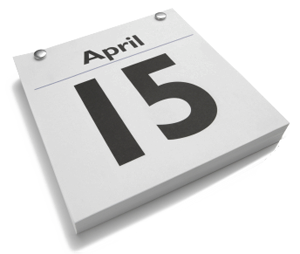How Long to Keep Tax-Related Documents
 Once again the taxman cometh and many business owners are either gathering their financial records to prepare tax returns or filing them away. And since the promise of a completely paperless office is as much a reality as all of us having flying cars, it’s once again time to ask ourselves how long we need to keep these financial documents.
Once again the taxman cometh and many business owners are either gathering their financial records to prepare tax returns or filing them away. And since the promise of a completely paperless office is as much a reality as all of us having flying cars, it’s once again time to ask ourselves how long we need to keep these financial documents.
“Oh” you say, “My bank and credit card statements, canceled checks and other records are now kept online, so I don’t need to save all of that paper.” Although this may be true for your business, you’ll want to be sure these records will be available if and when you need them. First, you should check to see how long the bank or other institution keeps these records. Second, you may want to keep a back up just in case. In many instances, you can simply save these documents as PDFs when you reconcile your statements each month and keep them on your computer or on an external storage device. This way you have the documents available electronically without adding to your paper files or worrying about online availability.
Regardless of the format in which you maintain your records, your first concern is to be sure you can provide adequate documentation to your tax preparer and to the Internal Revenue Service if you are ever audited. Unless your tax advisor tells you differently, you should keep tax-related records for a minimum of three years. That’s the time period within which the IRS typically audits returns. However if the IRS has reason to believe that there are problems with your record-keeping practices that have been going on for some time, they can investigate as far back as six years.
So what, exactly, do you need to hang on to? Again, follow the advice of your tax advisor or CPA. Most likely they will tell you to keep the following items:
- Documents pertaining to income including invoices, credit card records and bank deposits.
- All proof of purchases for raw materials and other costs-of-goods-sold, invoices or credit card receipts, credit card statements and canceled checks for deductible expenses (office supplies, postage, travel, utilities, rent, etc., etc.).
- If claiming automobile expenses for business travel, be sure to maintain and keep contemporaneous mileage logs including the business reason for the trip.
- Keep all receipts for any deductible charitable contributions.
- Tax related documents including payroll records, employee W2 forms, W9 forms, 1099 forms and, of course, proof of state and federal tax deposits, unemployment taxes and worker’s comp payments.
This is not an exhaustive list, but it should help you to have a discussion with your tax preparer, tax advisor or accounting firm. Tax laws change at the whims of our legislators, thus it pays to consult with the experts so you don’t get caught unprepared if the taxman calleth.